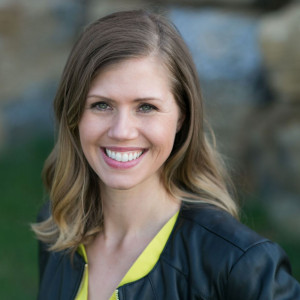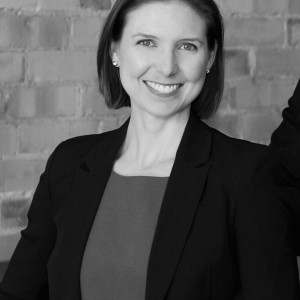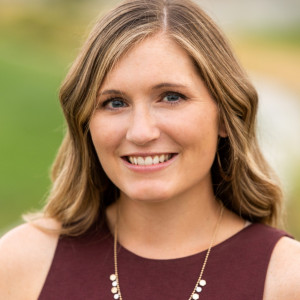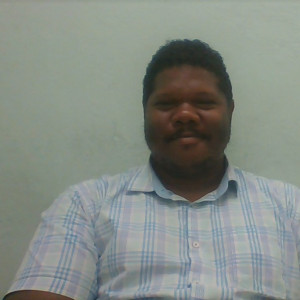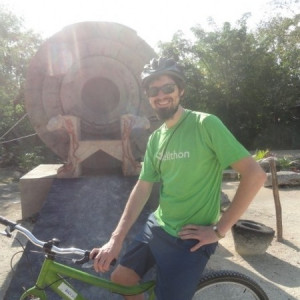What's your typical work routine?
Interview with John, an international business writer sharing 15 years of insights
I usually work Monday to Friday from mid-morning to late evening. And some additional work to prepare for the week – on Sunday.
For over a decade, John has worked as an international business writer. See his insights on the state of remote work, freelancing, and attracting clients who are the right fit.
Read full interview from Interview with John, an international business writer sharing 15 years of insights.
Interview with Tammy, founder and CEO of Workplaceless
I usually wake up between 6 and 7, when I have coffee and breakfast.
I start my day by journaling, which helps me focus.
I start work around 8. My workday usually consists of meetings, strategy work, instructional design, and course development tasks. I work out in the middle of the day around lunchtime, then get back to work around 1:30. I try to finish the workday between 5 and 6.
Learn how this founder and CEO of a remote work resource and certification program handles the triumphs and trails of location independence.
Read full interview from Interview with Tammy, founder and CEO of Workplaceless.
Interview with Tara, a remote director of research and administration
I get up shortly after my husband leaves for the day and get a workout completed first thing. We follow set work hours, and I take lunch around one, when I typically take our miniature pinscher, Frankie, for a walk.
I am flexible and responsive to the needs of the business, but I prefer to make any needed phone calls in the morning and save administrative work for later in the afternoon.
A move to be closer to a spouse's job led Tara to remote work—see her tips for staying productive and organized as a full-time remote director.
Read full interview from Interview with Tara, a remote director of research and administration.
Interview with Celine, a VP of People Ops and remote team member
I have a nice mix of being autonomous and being part of a team.
I usually start up in the morning by checking all messages in our instant messaging system and deal with easy to answer questions and emails.
Then I spend the time until the other part of the world gets up focusing on substantive work and the goals I set myself.
Late afternoons and evenings are usually dedicated to meetings.
Celine has experienced the highs and lows of working with remote and hybrid teams—see her tips for thriving as a member of a remote team.
Read full interview from Interview with Celine, a VP of People Ops and remote team member.
Interview with Audrey, a military wife thriving as a marketing manager
Working with Boldly, I have the opportunity to structure my day in a way that works best for me (flexibility for the win!) The leadership of the company realizes that in order for team members to be able to do their best work, their schedule has to be set around times that are most productive for them.
For me, that's the mornings. I feel most energized, most creative, and most motivated early in the day.
I start around 7:30 am after I drop my two kiddos off at school. I settle into my home office with a cup of coffee and whatever Spotify playlist matches my mood for the morning (Mondays is normally peaceful piano, while Fridays are usually Top 20 hits.
And I'm not going to lie, if I'm going to be on a webinar or Facebook live which I often do, I listen to a little hip hop beforehand to pump me up! :))
I try to schedule my meetings on Tuesdays, Wednesdays and Friday mornings—that way I have large chunks of work blocks on Mondays, Thursdays and Friday afternoons to delve deep into involved tasks or writing projects.
I usually take a short lunch break to walk the dog around the neighborhood or go for a quick run. That helps me stay energized for my afternoon, which I normally wrap up by 3:30 pm to pick up the kiddos.
It's so nice to spend the afternoons with them and beat the 5 pm pick up rush — probably one of my favorite parts about my job/schedule!
I do leave my Slack notifications on until around 5 pm in case anything urgent pops up, but after that, I try to be really diligent about staying offline.
When you can work from anywhere, I think it's important to be intentional about drawing the line when it's time to unplug.
Marrying an active-duty army officer sent Audrey on the search for a remote work position—see how she has established her career while staying on the move.
Read full interview from Interview with Audrey, a military wife thriving as a marketing manager .
Interview with Sarah Archer, a content marketing manager & remote work techie
I start my day at 7 a.m. to get a work out in. When I worked from an office, I became accustomed to going to CorePower yoga sculpt classes at a local studio in California.
Now that I travel while working remotely, I use the CorePower On Demand app and workout wherever is most convenient — most frequently in the living room of my accommodation or coliving space.
That’s followed by a yogurt and coffee, and then I start my work day.
When working remotely, establishing a routine that works for you is crucial.
I typically spend the beginning of my week focused on my inbox, connecting with publishers, editing, and assigning work. Towards the end of the week, I’m heads-down writing new content. That’s where my sound-proof headphones are put to good use.
I try to go outside during lunch every day if the weather is nice. The fresh air gives me the energy boost I need to be productive throughout the afternoon.
From noise-canceling headphones to Basecamp—content marketer Sarah shares her must-have remote work tools & essential productivity tips.
Read full interview from Interview with Sarah Archer, a content marketing manager & remote work techie.
Interview with Alyssa, a copywriter and content strategist
I wake up around 8:30 AM, have a cup of tea, and get to work around 9 AM. During the first few hours of the morning, I get most of my writing work done. Then I have lunch and move on to lighter work in the afternoon, such as admin, marketing and editing.
Alyssa has found her rhythm as a freelancer and founder of the blog, Freelancing Flow—see her tips for keeping it all running smoothly.
Read full interview from Interview with Alyssa, a copywriter and content strategist .
Interview with Vernon, a freelance technical writer
I try to maintain regular working hours. I wake up between 6 am and 7 am and go through my morning routine of meditation, exercise, shower, and breakfast.
I then head out to my office. I used to work from a home office, but I find it's difficult to maintain discipline while working at home.
Home is my sanctuary away from work.
When I get to my office I look at my outstanding assignments and prepare a to-do list for that day, breaking up large assignments into smaller, manageable chunks, then I have at it.
I work until lunch, take an hour off, start again and continue until sunset.
As a freelancer, lists are essential. I make lists for everything. You need to stay organized and on top of multiple projects with multiple clients. Missed deadlines and incomplete jobs do not reflect well on you, so you have to stay frosty. Lists will help you to do that. At the same time, however…
When you do mess up, and everybody has, you need to move on as quickly as possible. Don’t beat yourself up, obsess about it nor allow it to make you second guess yourself. Your confidence is an important component in building your business. So forgive yourself often and keep your eyes forward.
Always be aware of the things you need to know that you don’t know and make an effort to learn them. Don’t have the time to properly invest in it? Doesn’t matter, learn what you can, when you can.
It is better to have a cursory knowledge of a topic than be completely ignorant of it. Besides, once you get into the habit of learning (yes, make it a habit) you’ll eventually get up to snuff on whatever you need.
Take frequent breaks, if you can. Most remote work is knowledge work, and knowledge work is intense. Don’t burn yourself out. A Pomodoro timer is excellent for this.
The best things about freelance remote work are that my time is mine to control, but I have to be disciplined about it. That being the case, many times in my life things will come up which mean shifting up my schedule to accommodate other missions.
This is, again, where my lists are invaluable. They allow me to organize my work and time allotments to maintain my priorities, a key one being to provide my clients with their deliverables on time and at good quality.
Regarding good habits, waking up early is always a good idea. The earlier I wake up, the more work I get done. Also, as I said before, keep lists. I will encourage everyone to keep lists. Lists help to keep you on top of your work specifically and your life in general.
Be optimistic and stay positive. As a freelancer or entrepreneur engaged in remote work, you need to maintain positivity, especially when things aren’t going so great, because a positive attitude may be the only thing that can pull you out of a slump.
By and large, though, the greatest aid to a remote worker is self-discipline. Being a remote worker can be lonely. It’s just you. No one will be pushing or prodding or encouraging you. There’s no one keeping you on track. Only you can make sure that the work gets done well and on time. You’ll find that as your discipline increases, everything runs smoother.
Vernon is a freelance software technical writer that uses lists to organize his hectic freelance schedule—see how he maximizes his time throughout the workday.
Read full interview from Interview with Vernon, a freelance technical writer .
Interview with Laurent, an introverted remote worker & engineer
I wake up when the kids wake me up, which is always earlier than I’d hope 😄. I am able to spend time with them before starting to work at around 8:30.
I usually have some meetings at 10 am, so I take the time before that to catch up on messages, production analytics, task updates from my team, and post my daily standup in our messaging app (we use Twist). I take a break to prepare lunch for the whole family at 11:30, so anytime before that will be used for quick individual contributor work.
I resume working after launch at 1 pm. Depending on the day, I will have some 1:1 meetings, but otherwise, I can do individual contributor work pretty much every afternoon. I’ve set aside 4 to 5 pm every day to read books; this is my continuous learning block. I take a break at 5 pm to prepare dinner for the whole family.
I get to spend time with my kids until the younger ones are in bed. Then I do a final one hour of work between 8 to 9 pm. I use this time to either catch up on stuff that happened during my dinner or plan stuff for the next day. If all is fine, I can do individual contributor work instead.
I can spend the rest of the evening with my girlfriend until bedtime, which is at around 11:30 pm.
On Friday we have an unofficial no-meeting policy, which is really great 🎉.
In this interview, this VP of engineering shares his strategies for managing family time and organizing meetings as an introvert.
Read full interview from Interview with Laurent, an introverted remote worker & engineer.
Interview with Phil Strazzulla, an entrepreneur enjoying the health benefits of remote work
I get up around 7:30 am, have breakfast, check emails, and then go heads down on 2-3 high priority projects from 8:30-10:30 am. After this dedicated period, my day usually gets broken up by meetings, a workout, cooking dinner, and other shorter periods of deep work.
A curiosity for remote work led Phil to make it a primary work arrangement. Hear how it has helped to improve his health and impacted his approach to rest.
Read full interview from Interview with Phil Strazzulla, an entrepreneur enjoying the health benefits of remote work.

